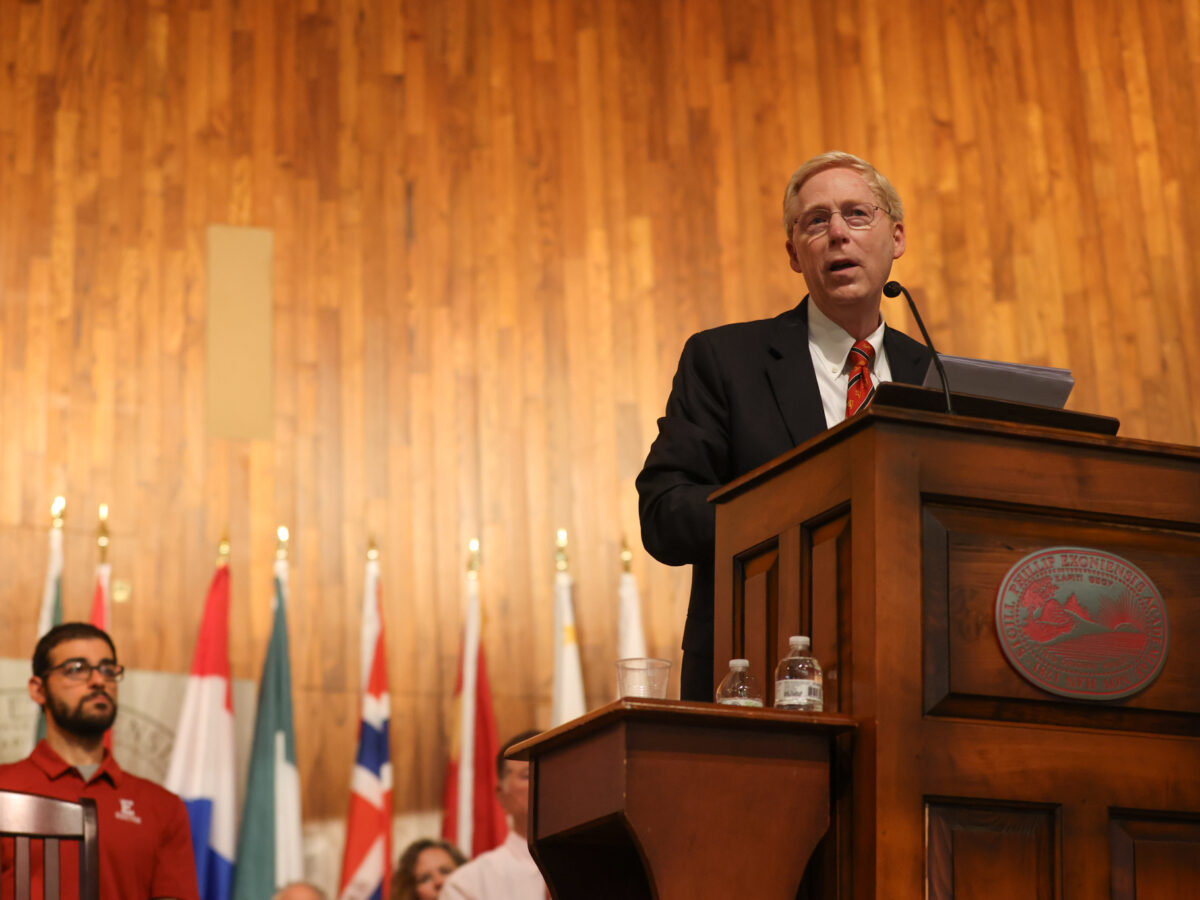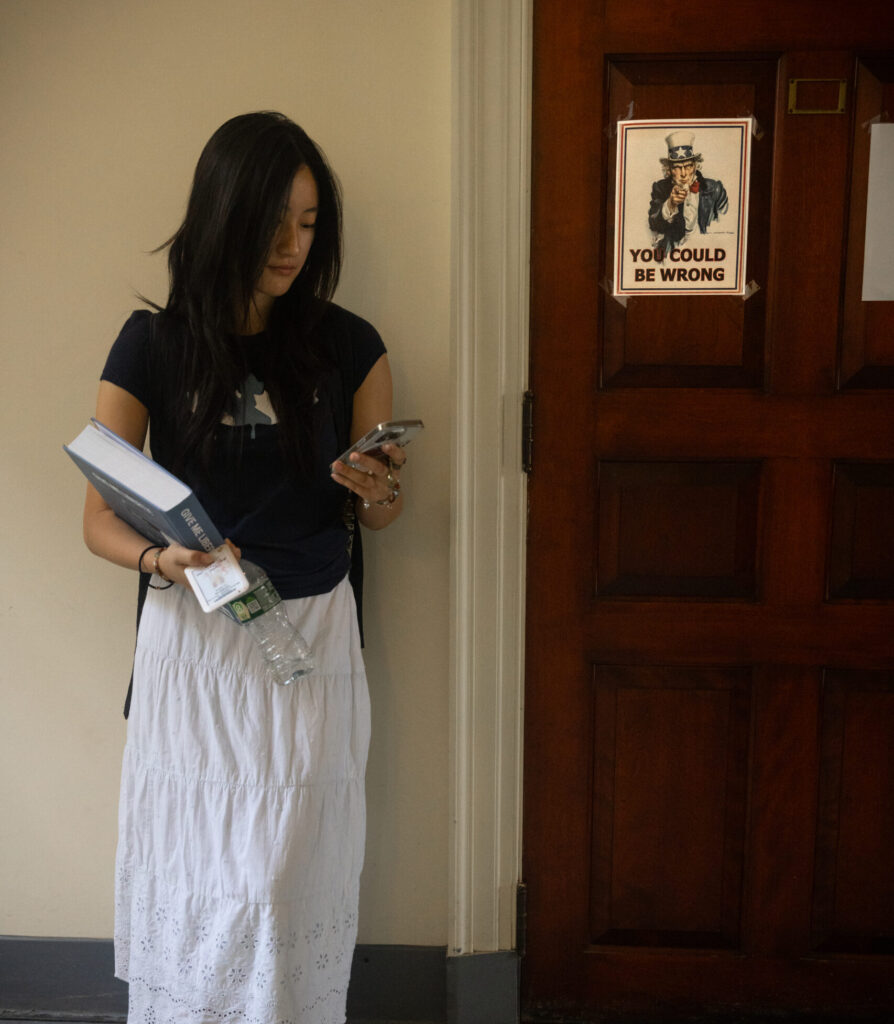Seeking Complex Truths

Academic excellence is a defining strength of our school and one of the reasons students choose Exeter. Our core value of academic excellence states: “In every discipline and at every level within our curriculum we inspire students to develop critical thinking skills and seek complex truths.”
At Opening Assembly this year, I talked about what it means to seek complex truths, why that is important, and how we do it.
We grapple with complex truths because we understand that simple narratives often are false, and false narratives often are simple. We are not at Exeter to pursue simple truths when complex truths are required to understand the world. We are committed to helping students learn how to seek complex truths that take into consideration all relevant facts and respect the dignity and equal worth of all human beings.
The learning that we seek at Exeter starts with being open to different points of view, and with being curious about why people from different backgrounds and experiences, or maybe similar backgrounds and experiences, might see things differently. It requires listening to other perspectives with empathy, humility and respect, and with the understanding that learning at Exeter is a collaborative process.
This kind of learning requires a certain measure of resilience. It requires understanding the difference between being uncomfortable and being unsafe. At Exeter, we want students to learn to become comfortable with being uncomfortable, so they can engage with facts and perspectives that might not seem to fit their worldview, plumb the depths of an issue, and seek complex truths. This is what we mean by “rigorous inquiry and thoughtful discourse” in our core value statement of academic excellence.
As I said in Opening Assembly, the qualities that we seek to encourage in our students — listening with curiosity, empathy and humility; being resilient; being open to different viewpoints; and being comfortable engaging with facts that challenge their thinking — are skills that will provide a foundation for everything they will do and achieve in life. We think of them as Harkness skills, or goodness and knowledge skills, but they also are life skills.
Our diversity at Exeter — our commitment to youth from every quarter — also is a defining strength of our school that propels our learning. We understand that the promise of our diverse community is realized fully only when we commit ourselves to rigorous inquiry and thoughtful discourse.
By contrast, anything that narrows our thinking, or closes our mind to different points of view, will inhibit our learning as individuals and as a community. When we stop being curious, we stop learning.

The famous World War I-era U.S. Army recruiting poster gets a new tag line and hangs outside of History Instructor Alexa Caldwell
History Instructor Alexa Caldwell has a poster outside her classroom — a variation on the famous World War I-era U.S. Army recruiting poster — that shows Uncle Sam pointing his finger at the viewer and saying, “You Could Be Wrong.” Her colleague in the History Department, Bill Jordan, created the poster after reading the award-winning book The Political Classroom; in a similar spirit, he hands out stickers to his students that read, “I could be wrong.” And in the classroom next door to Bill’s, History Instructor Aykut Kilinc greets his students with a sign that quotes my remarks from Opening Assembly in 2022: “We should expect a diversity of viewpoints on almost every subject worth exploring.”
These are just some of the ways that we aim to teach students how to think, not what to think, and how we seek to inspire them at all levels to develop critical thinking skills and seek complex truths.